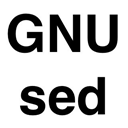xoviat
5,695,227
Downloads of Packages
Packages:
GCC for Windows 64 & 32 bits.
The GNU compiler collection runtime.
gawk is a powerful pattern-matching and processing language. It is based on the language AWK.
Several kinds of tasks occur repeatedly when working with text files. You might want to extract
certain lines and discard the rest. Or you may need to make changes wherever certain patterns appear,
but leave the rest of the file alone. Writing single-use programs for these tasks in languages such
as C, C++, or Java is time-consuming and inconvenient. Such jobs are often easier with awk. The awk
utility interprets a special-purpose programming language that makes it easy to handle simple
data-reformatting jobs.
The GNU implementation of awk is called gawk; if you invoke it with the proper options or environment
variables (see Options), it is fully compatible with the POSIX specification of the awk language and
with the Unix version of awk maintained by Brian Kernighan.
Using awk (or gawk) allows you to
Manage small, personal databases
Generate reports
Validate data
Produce indexes and perform other document preparation tasks
Experiment with algorithms that you can adapt later to other computer languages
Also, gawk provides facilities that make it easy to
Extract bits and pieces of data for processing
Sort data
Perform simple network communications
sed (stream editor) is a non-interactive command-line text editor.
GNU Make is a tool which controls the generation of executables and other non-source files of a program from the program's source files. Make gets its knowledge of how to build your program from a file called the makefile, which lists each of the non-source files and how to compute it from other files. When you write a program, you should write a makefile for it, so that it is possible to use Make to build and install the program
Wrapper generator for interfacing between languages.
DSynchronize is a stand-alone utility that let you periodically synchronize two or more folders on Hard Disk, Floppy Disk, LAN, USB Key, CD-DVD and FTP server.
Shell Extensions are in-process COM objects which extend the abilities of Windows operating system. Most shell extensions are automatically installed by the operating system, but there are also many other applications that install additional shell extension components. For example, if you install WinZip on your computer, you'll see a special WinZip menu when you right-click on a Zip file. This menu is created by adding a shell extension to the system.
The ShellExView utility displays the details of shell extensions installed on your computer, and allows you to easily disable and enable each shell extension.
Disable/enable context menu items of Explorer
Using NoteFolio Creator PC software, students can transfer notes to and from their graphing calculator to Microsoft® Word® files.
The .NET Framework version 1.1 redistributable package includes everything you need to run applications developed using the .NET Framework.
silentcmd is a program for running commands such as batch files or command-line executables without the command prompt window showing.
monitor canbus traffic with slcan-compatible hardware, including canable from canable.io.
OpenOCD, the Open On-Chip Debugger has been created by Dominic Rath as part of a diploma thesis.















